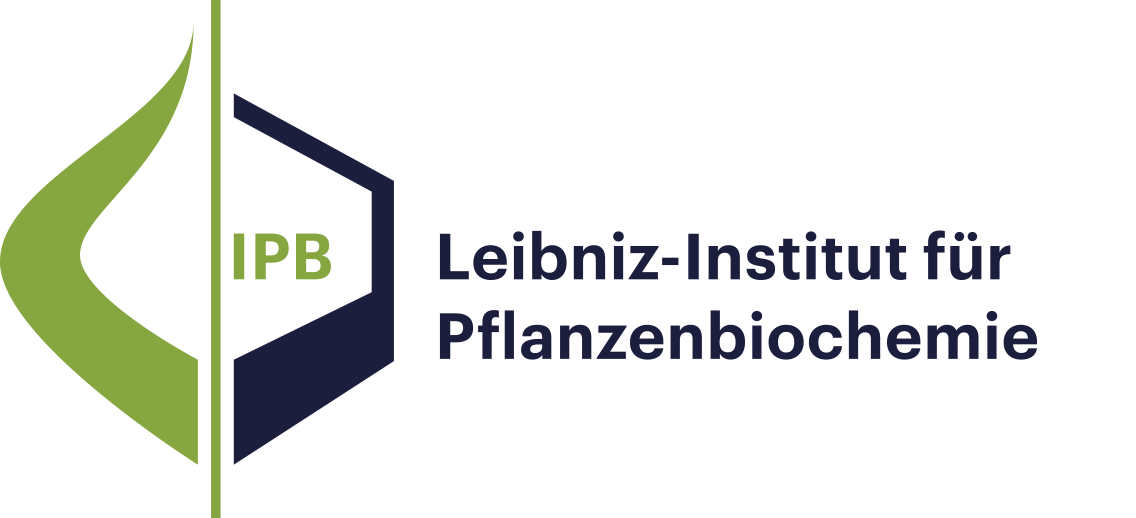- Ergebnisse als:
- Druckansicht
- Endnote (RIS)
- BibTeX
- Tabelle: CSV | HTML
Publikation
Publikation
Publikation
Publikation
Publikation
Leitbild und Forschungsprofil
Molekulare Signalverarbeitung
Natur- und Wirkstoffchemie
Biochemie pflanzlicher Interaktionen
Stoffwechsel- und Zellbiologie
Unabhängige Nachwuchsgruppen
Program Center MetaCom
Publikationen
Gute Wissenschaftliche Praxis
Forschungsförderung
Netzwerke und Verbundprojekte
Symposien und Kolloquien
Alumni-Forschungsgruppen
Publikationen
Publikation
The vision of NFDI4Chem is the digitalisation of all key steps in chemical research to support scientists in their efforts to collect, store, process, analyse, disclose and re-use research data. Measures to promote Open Science and Research Data Management (RDM) in agreement with the FAIR data principles are fundamental aims of NFDI4Chem to serve the chemistry community with a holistic concept for access to research data. To this end, the overarching objective is the development and maintenance of a national research data infrastructure for the research domain of chemistry in Germany, and to enable innovative and easy to use services and novel scientific approaches based on re-use of research data. NFDI4Chem intends to represent all disciplines of chemistry in academia. We aim to collaborate closely with thematically related consortia. In the initial phase, NFDI4Chem focuses on data related to molecules and reactions including data for their experimental and theoretical characterisation.This overarching goal is achieved by working towards a number of key objectives:Key Objective 1: Establish a virtual environment of federated repositories for storing, disclosing, searching and re-using research data across distributed data sources. Connect existing data repositories and, based on a requirements analysis, establish domain-specific research data repositories for the national research community, and link them to international repositories.Key Objective 2: Initiate international community processes to establish minimum information (MI) standards for data and machine-readable metadata as well as open data standards in key areas of chemistry. Identify and recommend open data standards in key areas of chemistry, in order to support the FAIR principles for research data. Finally, develop standards, if there is a lack.Key Objective 3: Foster cultural and digital change towards Smart Laboratory Environments by promoting the use of digital tools in all stages of research and promote subsequent Research Data Management (RDM) at all levels of academia, beginning in undergraduate studies curricula.Key Objective 4: Engage with the chemistry community in Germany through a wide range of measures to create awareness for and foster the adoption of FAIR data management. Initiate processes to integrate RDM and data science into curricula. Offer a wide range of training opportunities for researchers.Key Objective 5: Explore synergies with other consortia and promote cross-cutting development within the NFDI.Key Objective 6: Provide a legally reliable framework of policies and guidelines for FAIR and open RDM.
Publikation
Fungal peroxygenases represent an exciting new enzyme class for stereo-selective hydroxylation reactions. They are capable of the oxyfunctionalisation of a large, diverse scope of substrates including alkanes and steroids as well as the heteroatoms sulfur and nitrogen. The outstanding activities and stabilities as well as their reliance on hydrogen peroxide as co-substrate renders it a highly interesting biocatalyst.
Publikation
The screening effort of large protein variant libraries renders the probability of coincidental discovering a new enzyme with non-natural activity to almost zero - the so-called numbers problem. Insights into the origin of life, evolution and enzymatic promiscuity, combined with the inspiration of methods from organic chemistry, offer solutions for this problem. With the newly discovered enzymes synthetic micro production units shall be established in a Leibniz Research Cluster where engineering and biotechnology are combined.
Publikation
0
Publikation
Late stage enzymatic prenylation and methylation are means to diversify (natural) compounds and to specify their functions. In eukaryotes and microbes, these steps are performed by large enzyme families, the prenyl and methyl transferases, which modify various types of small molecules, like isoprenoids, phenolics or alkaloids, but also DNA and proteins. We investigate the theoretical basis of these processes and possible commercial applications in synthetic chemistry.
Publikation
In Arabidopsis, deactivation of cyclin-dependent kinases via phosphorylation has no function in cell proliferation, growth, and stress response. In other eukaryotes, however, this is mandatorily required for maintaining genomic integrity.

